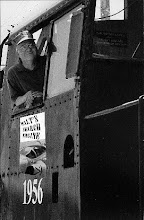Never ending atrocity from World War II
By Walter Haan, www.war-books.com
The internment of Japanese Americans during World War II was a blot on America's record. One result of it was that the Japanese occupying forces in the Philippines and the Netherlands East Indies (now Indonesia) referred to the internments as "American atrocities." The Japanese used those American internments as an excuse for their poor treatment of Allied POWs and civilians in the Pacific territories they captured early in the war.
A larger blot on America's record was US abandonment of its military forces in the Philippines. Twenty-two thousand American soldiers, airmen and sailors were made POWs by the Japanese in the Philippines. Another 1,555 of our forces were captured on Wake Island, and another 890 on Java--the list goes on. The Japanese used our men as slave laborers in coal mines, steel mills, and for building railways and bridges. About 41 percent of American military men captured in the Philippines died as POWs. This is the highest death rate among POWs in all of World War II, in both the European and Pacific wars.
President Reagan signed Public Law 100-383 in 1988. The law stipulated that surviving Japanese Americans who were relocated to our internment camps receive reparations of $20,000 each. Japanese Americans of Central and South American ancestry eventually were accorded $5,000 for being rounded up south of our borders and interned in US camps.
But the American survivors of Japanese brutality in Japanese POW and work camps have still today received no compensation for their slave labor. The US government does not assist these elderly veterans in receiving compensation from Japan and the large Japanese companies, such as Mitsubishi, that used Americans as slave laborers.
There is a small selection of books written by the American survivors of Japanese prison camp abuse. You can find a list of the books at www.west-point.org/family/adbc/books_files/membk.htm
The adbc in the URL stands for American Defenders of Bataan and Corregidor. On the list is The Emperor's Angry Guest by Ralph M. Knox which we published as a hardback in 1999. A paperback edition is still available from Trafford Publishing.
Oh, by the way, the British, Dutch and Canadian governments compensated their POWs of the Japanese when it was apparent the Japanese would not. The US has always refused to do so.--Copyright 2008 by Walter Haan, www.war-books.com
The internment of Japanese Americans during World War II was a blot on America's record. One result of it was that the Japanese occupying forces in the Philippines and the Netherlands East Indies (now Indonesia) referred to the internments as "American atrocities." The Japanese used those American internments as an excuse for their poor treatment of Allied POWs and civilians in the Pacific territories they captured early in the war.
A larger blot on America's record was US abandonment of its military forces in the Philippines. Twenty-two thousand American soldiers, airmen and sailors were made POWs by the Japanese in the Philippines. Another 1,555 of our forces were captured on Wake Island, and another 890 on Java--the list goes on. The Japanese used our men as slave laborers in coal mines, steel mills, and for building railways and bridges. About 41 percent of American military men captured in the Philippines died as POWs. This is the highest death rate among POWs in all of World War II, in both the European and Pacific wars.
President Reagan signed Public Law 100-383 in 1988. The law stipulated that surviving Japanese Americans who were relocated to our internment camps receive reparations of $20,000 each. Japanese Americans of Central and South American ancestry eventually were accorded $5,000 for being rounded up south of our borders and interned in US camps.
But the American survivors of Japanese brutality in Japanese POW and work camps have still today received no compensation for their slave labor. The US government does not assist these elderly veterans in receiving compensation from Japan and the large Japanese companies, such as Mitsubishi, that used Americans as slave laborers.
There is a small selection of books written by the American survivors of Japanese prison camp abuse. You can find a list of the books at www.west-point.org/family/adbc/books_files/membk.htm
The adbc in the URL stands for American Defenders of Bataan and Corregidor. On the list is The Emperor's Angry Guest by Ralph M. Knox which we published as a hardback in 1999. A paperback edition is still available from Trafford Publishing.
Oh, by the way, the British, Dutch and Canadian governments compensated their POWs of the Japanese when it was apparent the Japanese would not. The US has always refused to do so.--Copyright 2008 by Walter Haan, www.war-books.com

